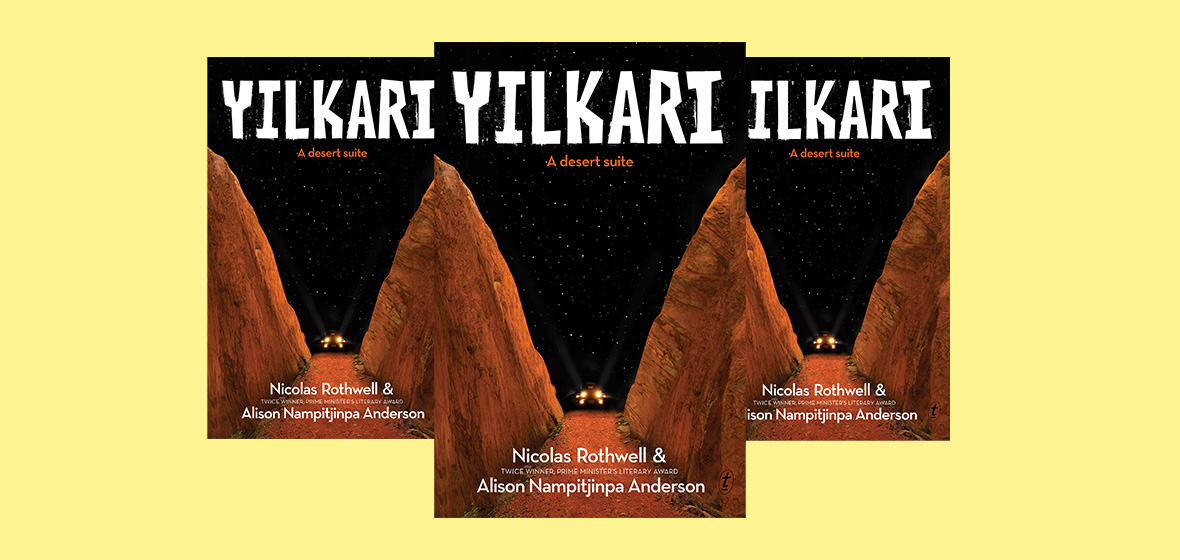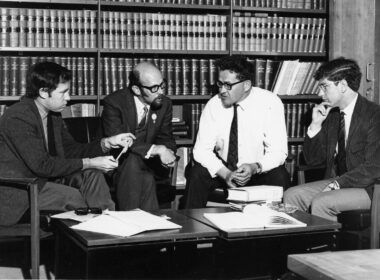Author: Nicolas Rothwell and Alison Nampitjinpa Anderson
Publisher: Text Publishing
Nicolas Rothwell is back at the fiction game with a new novel, Yilkari: A desert suite, this time co-authored with his wife, Alison Nampitjinpa Anderson. He is a decorated, fascinating figure of Australian literature, and she is a Luritja-Pintupi artist, First Nations polyglot, and former politician. Individually, they have led remarkable lives. Together, they now combine to conceive a truly unique work. It evokes and panegyrises the Australian desert; reflects on the commercialisation of cultural art; and, most fundamentally, recounts Rothwell’s personal journey as an outsider on Country, and his relationship with Anderson and Aboriginality more broadly. The authors—although it is Rothwell’s voice that pervades—do this by disrupting familiar narrative structures, reimagining the archetypal novel to traverse more spiritual dimensions of time and space.
Yilkari’s blurb makes the trite claim that it is a ‘mesmerising, unclassifiable book’. Personal gripes with blurbs aside, the former is true but the latter false. To me, it is a dialectic. Yilkari is arguably closer to a script than a novel. Moments of action, description or even old-fashioned narration are islands in a vast sea of dialogue. Plot? Conflict? Forget about it. Our narrator, who has a strong resemblance to Rothwell, recounts a series of five conversations mostly had on car journeys through the desert. Anderson is disintegrated amongst the narrator’s interlocutors—most of whom are from Country—and her understanding of Aboriginal connection to Country comes through them. Such is the dialectic: a nomadic outsider who has traipsed the desert searching for spiritual transcendence versus a desert native (except Valentin) whose art or life has been perverted by various forms of settler-colonialism. The latter takes the former on, trying to show him what he seeks, and, in doing so, reveals that connection is beyond worldly understanding or expression—but can nonetheless be glimpsed.
I must admit, absent any preconceptions, I originally found Yilkari difficult to get into. The deluge of dialogue isn’t natural and tends toward the monotony of long speeches, meaning there is an expositional, Shakespearian quality to it. Readers accustomed to a degree of subtlety and subtext might find their eyes rolling at particularly didactic moments. It also deprives us of drama. Yet, needless to say, Rothwell’s affinity for sophisticated and impactful sentences does an impressive job of evoking the Australian desert. As I got used to authors’ cadence and began to conceive their design, it grew on me. Fiction is a little different for these two. It is less representation and more revelation, and the personal elements underpinning Yilkari’s journeys give this difference power. In many ways, it is the ideal form for reflecting indigenous oral traditions. This is what makes Yilkari so unique and, I hate to use the cliche, it is mesmerising. It is guiding you toward your own awakening to Country; toward an experience of the Australian landscape that goes beyond what is visible; to the idea that the land retains echoes of past words, actions, and thoughts—its terrain scattered with fragments of memory that, when assembled, offer glimpses of the paths we’ve walked in other lives.




